
Knowing the dos and don'ts when it comes to fridge storage is surprisingly important. It will not only help you maintain a more organised fridge, but you'll also be able to enjoy your food at its best for longer as a result. That's why knowing the things you should never store in a fridge is key.
Sure, we all know how to clean a fridge, but how many of us know exactly which foods don't belong in there? We might think that keeping things in the fridge is only going to help them, but actually, the opposite can be true.
In fact, some of the things you should never store in a fridge include tomatoes, and garlic, which may come as a surprise for many. After speaking to chefs and culinary experts, we've devised this list of 10 foods you should never store in your fridge.
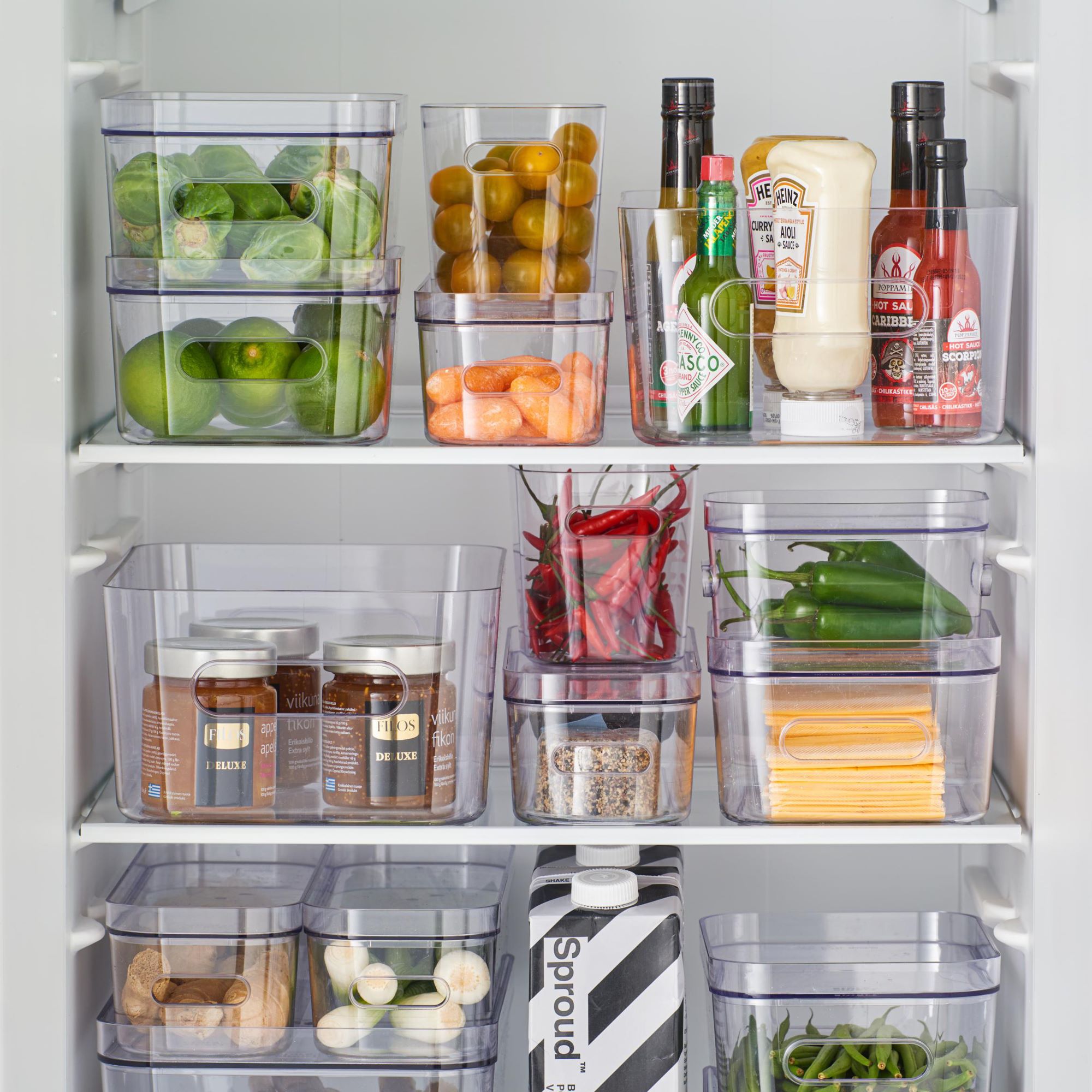
1. Tomatoes
If you've been storing tomatoes in the fridge (me too), apparently, we've been doing it wrong. Dean Harper, chef at Harper Fine Dining explains that the temperature of a fridge isn't optimal for maintaining the freshness of tomatoes.
'The cold ruins their flavour and texture, making them mealy and less sweet. Instead of storing them in the fridge, keep them on the countertop in a single layer, away from direct sunlight, where they can ripen naturally.'
2. Potatoes
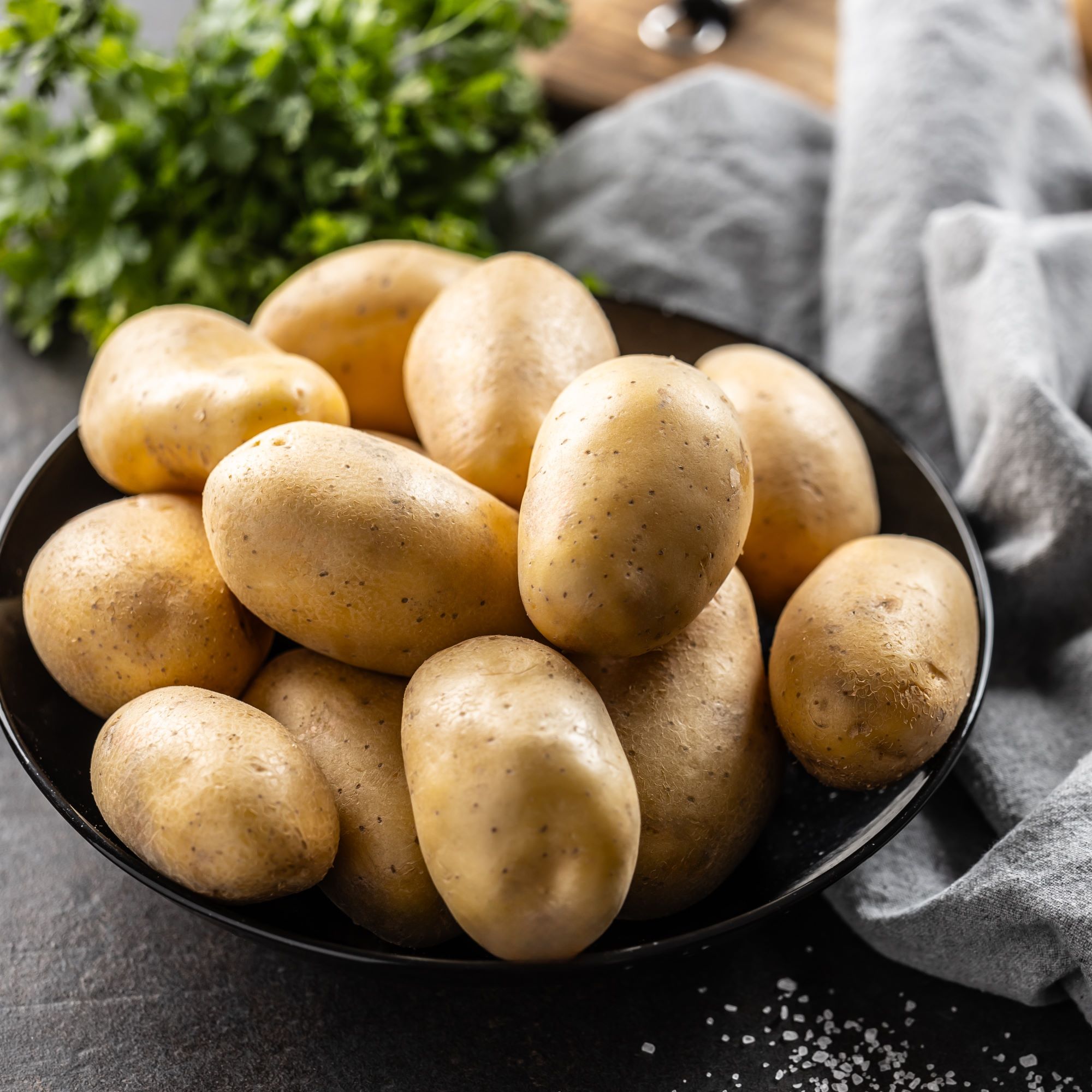
More often than not, we tend to keep our spuds in a pantry storage solution, but potatoes that have been sitting there for a while can sometimes end up in the fridge in an attempt to increase their lifespan. But the experts warn against this if you want to enjoy a classic potato flavour at the end.
'Cold temperatures turn the starches of potatoes into sugar too quickly, creating an odd sweetness,' Dean says. 'Store them in a cool, dark place like a cupboard for the best results.'
3. Balsamic vinegar
As far as food cupboard essentials go, balsamic vinegar is one we reach for time and again. With a lot of condiments and sauces, the label recommends that they be stored in the fridge once they've been opened, but this isn't the case with balsamic vinegar.
'Avoid storing balsamic vinegar in the fridge as this can dilute its flavour,' says Rachael Kiss from catering and equipment supplier, Alliance Online. 'Instead, you should store it in a cool, dark place, away from any source of heat.'
Make the most of storage potential by organising your kitchen cupboards. This will give you plenty of convenient space to store the items on this list.
4. Whole onions
Whole onions are one of the other things you should never store in a fridge, because the cold environment causes them to soften and spoil.
'Whole onions shouldn’t be stored in the fridge as the cold air can turn the onion’s starch into sugar,' Rachael explains. 'Instead, store whole onions in a cool, dark and dry place, such as a pantry.'
However, halved onions are best stored in a fridge, but you'll need to place them in airtight containers and consume within 2-3 days. 'Storing half onions in the fridge this way will reduce moisture absorption and prevent other fruits and vegetables, like apples and celery, from absorbing their odour,' Rachael says.
This bestselling set of three airtight food containers will help keep your halved onions (and other food stuffs) fresh for as long as possible, and keep any odours contained.
5. Honey
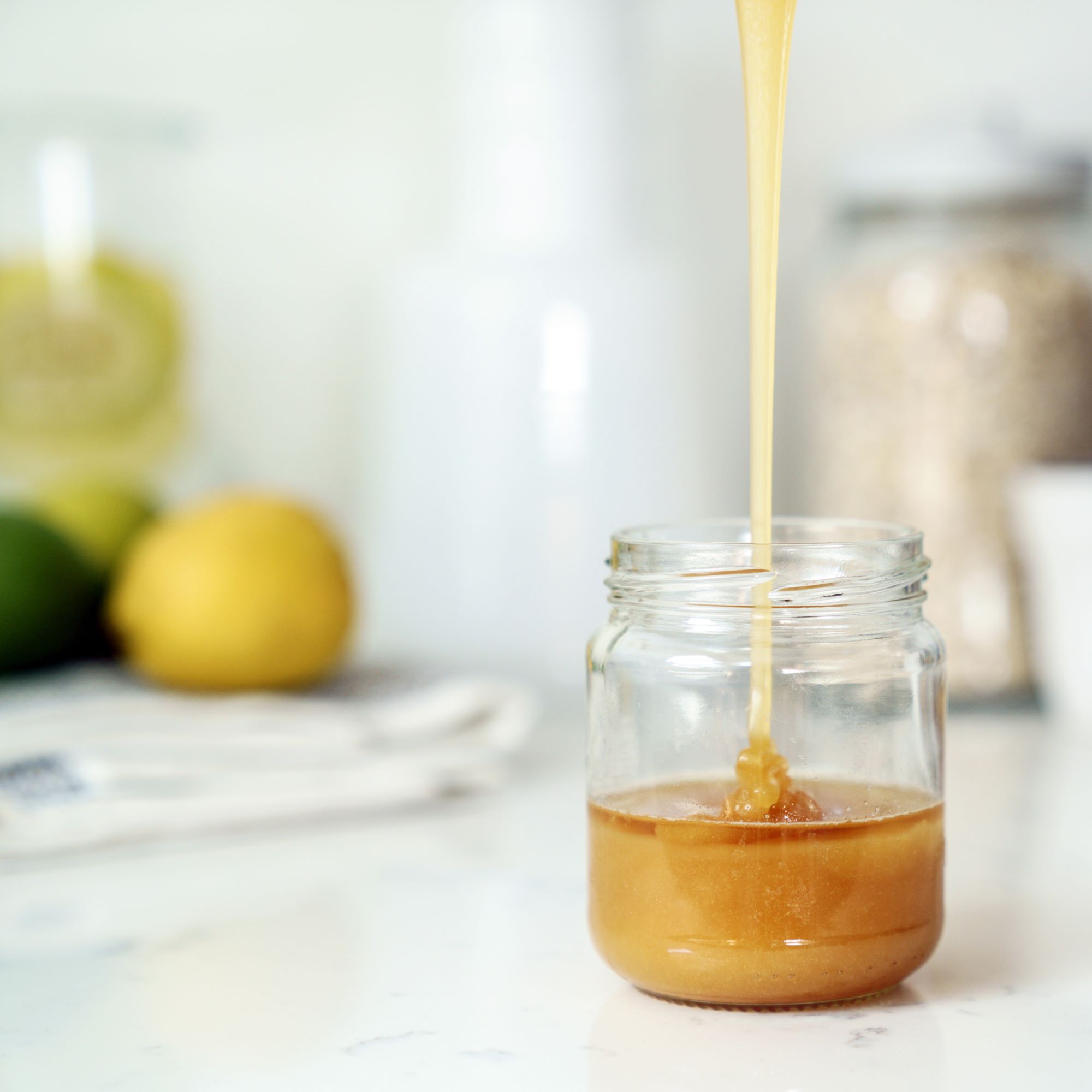
As delicious as honey is, it can be a pain when it starts to crystallise. But if you've been wondering whether putting it in the fridge would help, know that actually the opposite is true.
Rizwan Asad, food expert and founder of Chocolates & Chai, explains: 'The cold can make honey crystallize and change the texture. It should be stored in a cool, dark pantry to preserve its smooth, liquid form.'
Crystallisation is somewhat inevitable with honey, but at least now we know that storing it in the fridge will only make the process happen faster.
Looking to upgrade your honey storage solution? The Catania Glass Honey Pot from Anthropologie is irresistible, and will look much nicer than the store-bought bottle. I love how the lid is also a honey drizzler, making spreading and pouring much easier.
6. Bread
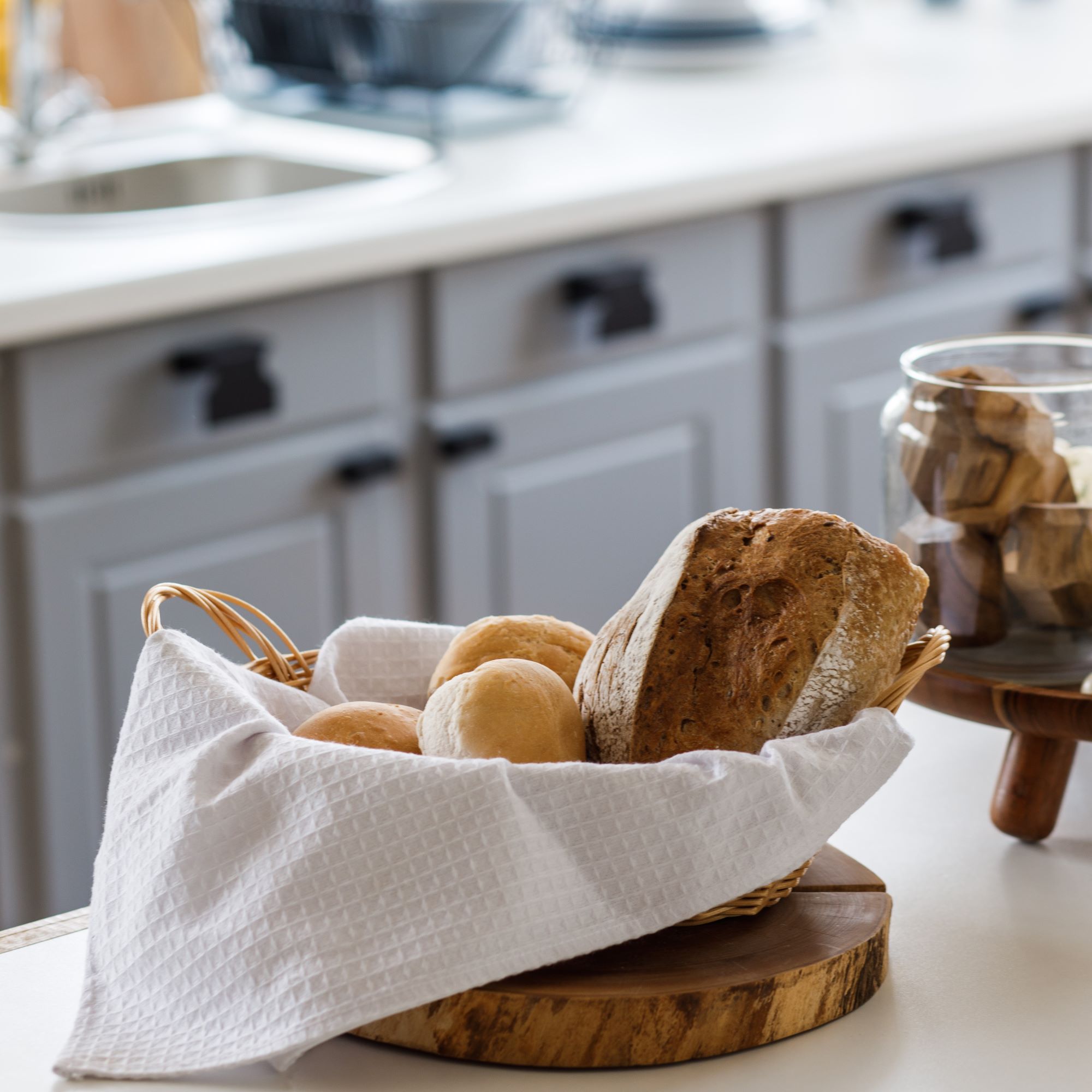
Whether you've used on the best breadmakers to make your own, or bought it from the store, the experts warn against storing bread in the fridge. To stay fresh for longer, it should be kept at room temperature, away from direct sunlight.
'When bread is stored in the fridge, the starch molecules recrystallize quickly, causing it to stale much faster,' Rizwan explains. 'It's best to keep loaves at room temperature rather than refrigerating them.'
A bread bin is of course a great option for storage, as the container traps moisture and prevents the bread from drying out and becoming stale.
I'm a big fan of roll-top bread boxes. This bamboo container is nice enough to keep out on kitchen worktops, and a convenient way of keeping bread fresh. We love the fact that it's made from bamboo, which is one of the earth's most sustainable resources.
7. Chocolate
Some people prefer the taste of chocolate when it's cold, but in order to maintain the right flavour and texture, it's best left out of the fridge.
'Chocolate should never be kept in the fridge as it can mess with the texture and flavor, dulling the taste,' Rizwan says. 'It’s best to store it at room temperature, away from direct sunlight, in a cool, dry place.'
8. Bananas
The best ripeness at which to enjoy bananas can be a divisive debate, but experts warn that however you like them, it's best not to keep them in the fridge.
'Storing bananas in the fridge slows ripening but quickly turns the skin black,' Greg Lambert, Food Director at SIX Rooftop at The Baltic. 'Instead, keep them out at room temperature and cover the stem with something like tinfoil to slow down the ripening process.'
Put your fruit on display with this Dunelm fruit basket, that has a hook for your bananas that will keep them from getting bruised.
9. Garlic
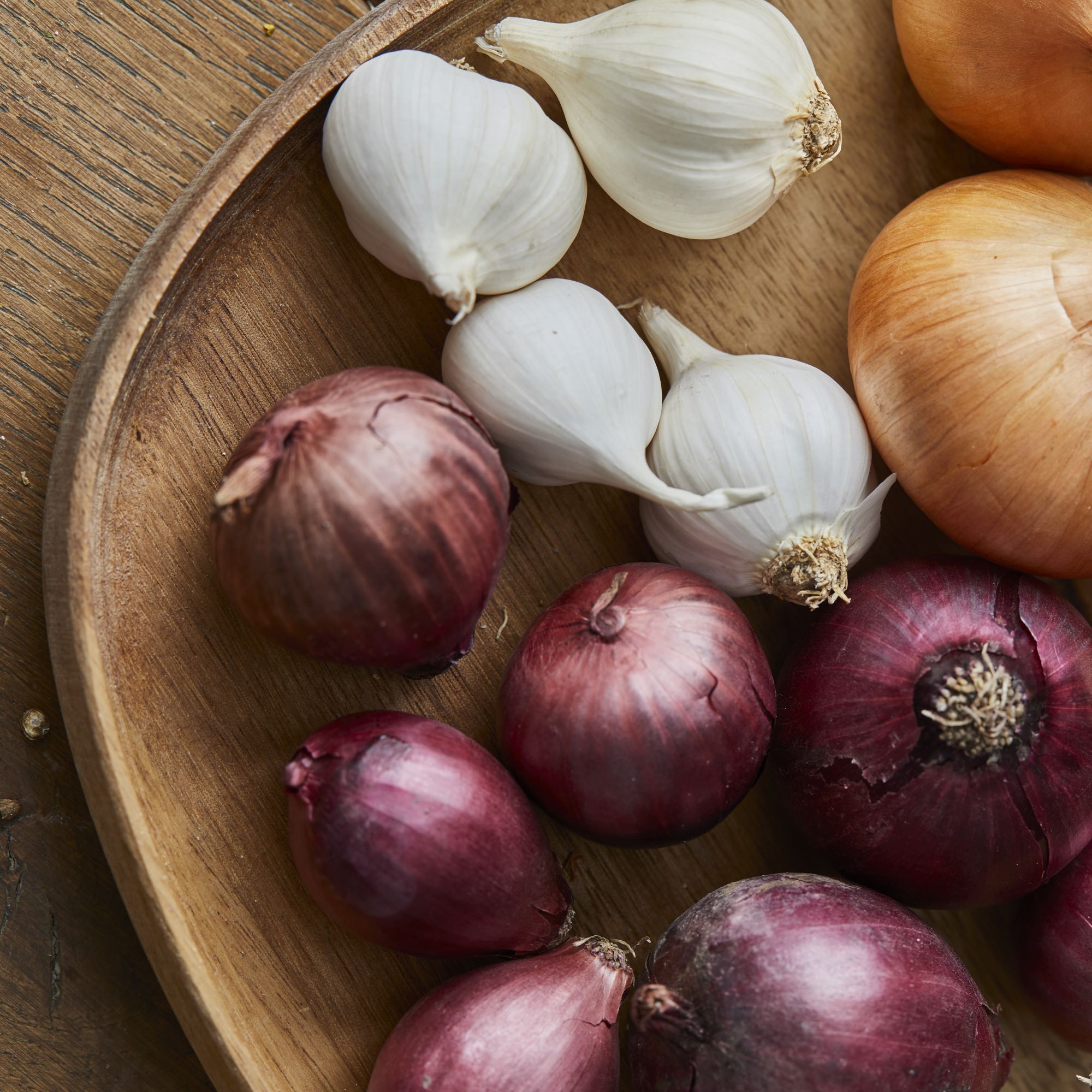
You'd be hard pressed to find a kitchen without some form of garlic knocking around. For fresh garlic, it can be tricky to know the best way to store it - I know I've kept some in the fridge before. But, the experts have clarified that it's best not to do this.
'Garlic is best kept in a cool, dry space such as a cupboard or pantry, because when it’s in a fridge, like most things, it has a tendency to absorb moisture,' Greg explains. 'This moisture absorption can cause the garlic to go rubbery in texture, but can also encourage sprouting. Garlic sprouts can often be bitter and cause indigestion.'
Le Creuset is one of our favourite kitchenware brands. As far as garlic containers go, it doesn't get much more chic than this. I love the small engraving of the garlic clove on the front. It's definitely pricey, but it would live in your kitchen forever.
10. Peanut butter
Last on the list of things you should never store in a fridge is peanut butter. If you're a fan of this spread, you might think that it's best practise to refrigerate it once opened - but just like balsamic vinegar, this isn't the case.
'Some people like to place peanut butter in the fridge once opened,' Greg says. 'Don't do it. It makes it very hard and conversely very difficult to spread. It's safe at room temperature as long as it’s kept in an air-tight jar.'
FAQs
Should cheese be refrigerated?
Yes, cheese does need to be refrigerated. However, there are some dos and don'ts that will make a big difference when it's time to enjoy it.
'Cheese absolutely needs to be stored in the fridge otherwise it will ripen too quickly and will spoil if kept out for too long,' says Patrick McGuigan, cheese expert for Butlers Farmhouse Cheeses.
'Keep cheese in the salad drawer as the main fridge and fans can be too harsh and put a layer of clean cardboard over the top to create a snug cave for added protection. Cheeses also like to be huddled together as long as they are wrapped separately to protect their flavour profiles.'
It's best to keep cheese away from anything in your fridge that may have a strong flavour so they don't get absorbed by the cheese. Patrick also recommends taking the cheese out of the fridge an hour before serving to enjoy it at its best.
'If you have bought big blocks to enjoy over several cheeseboards this Christmas, then only cut off the amount you want to serve and store the rest in the fridge till the next time,' he says.
Does bread with cheese need to be refrigerated?
Given that bread is one of the things you should never store in a fridge, but cheese isn't, knowing where to keep bread with cheese in it is a little confusing.
'Bread with cheese baked into it is usually OK at room temperature for up to two days as long as the temperature and humidity are not high,' chef Greg Lambert says. 'Through the baking process, water content is evaporated from the cheese which reduces the chance of spoilage and mould growth.'
Greg recommends treating this bread the same as any other bread and keep it in an airtight container at room temperature for up to two days. All bread is best enjoyed within the first couple of days, before it starts to get stale.



.png?w=600)



